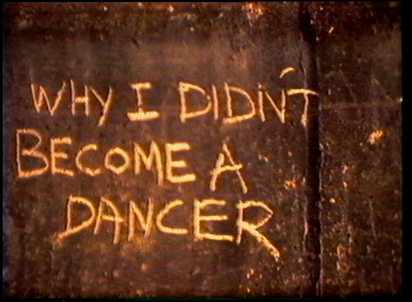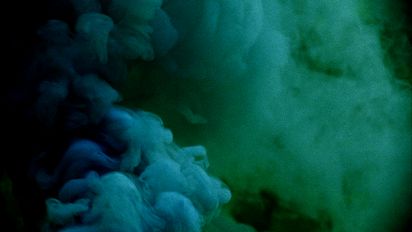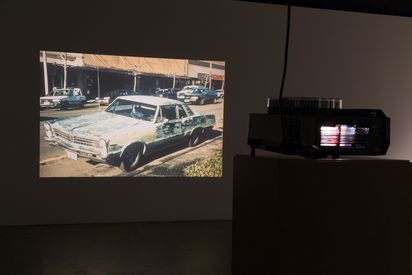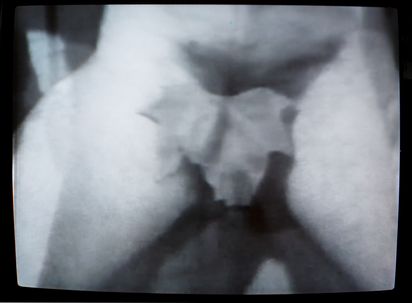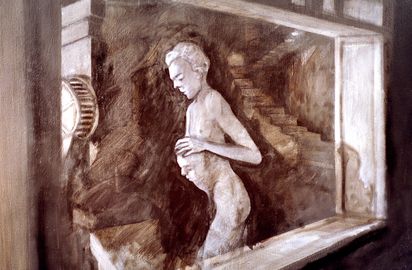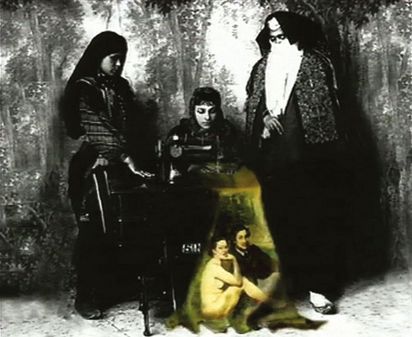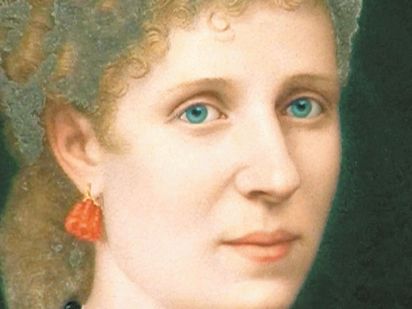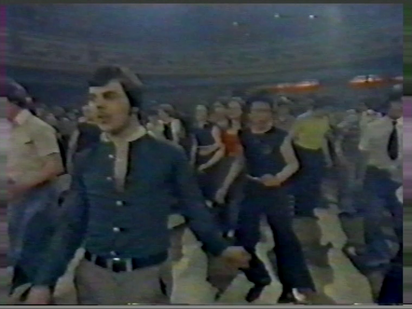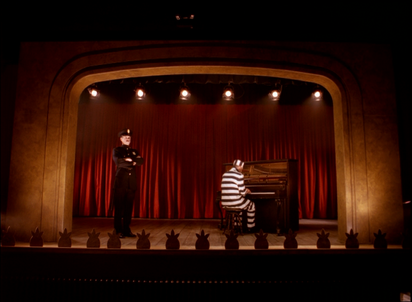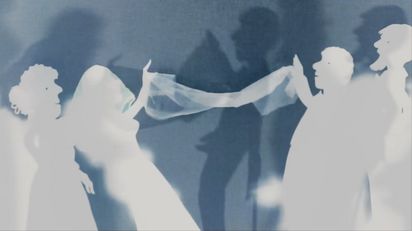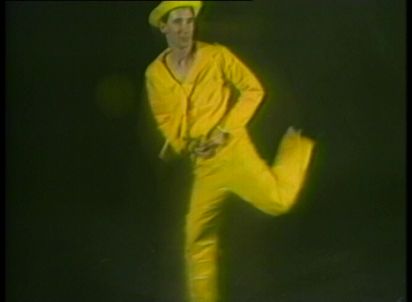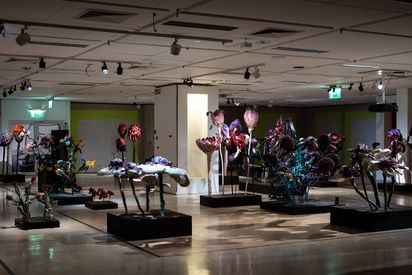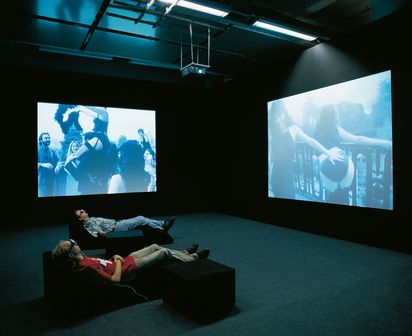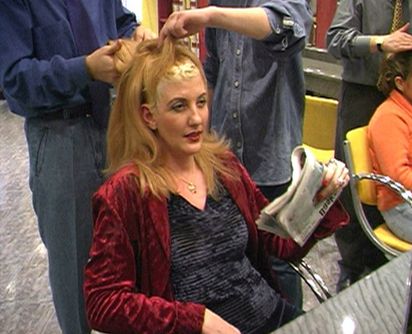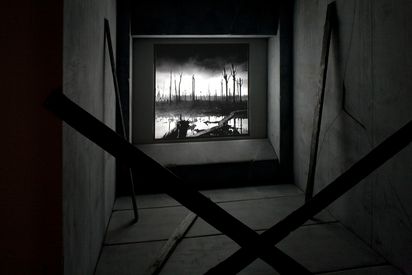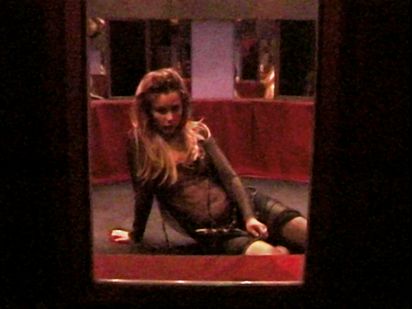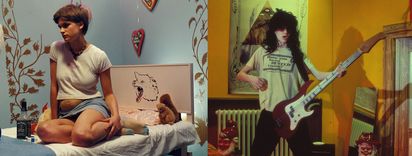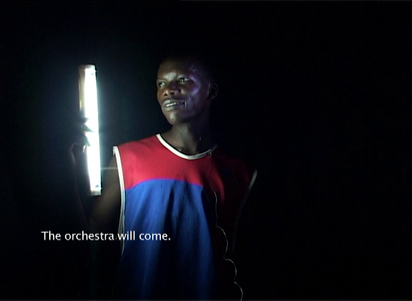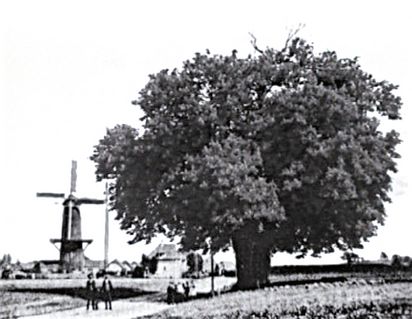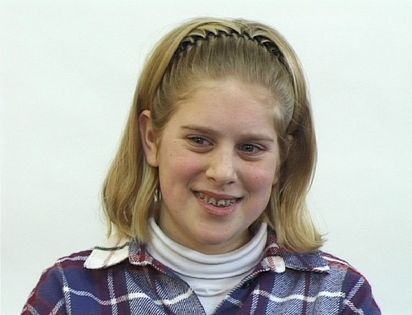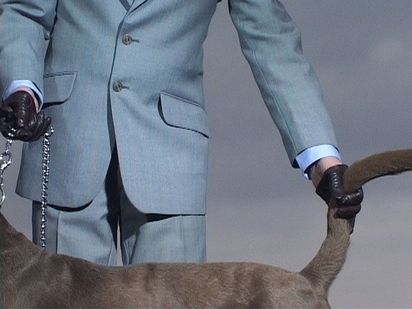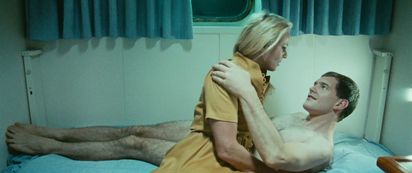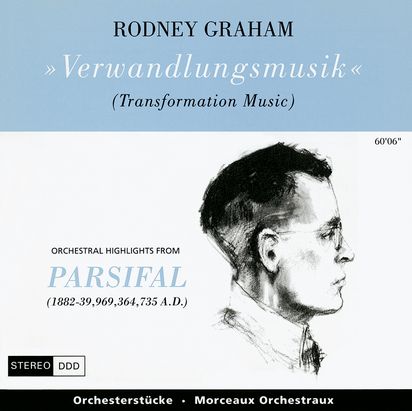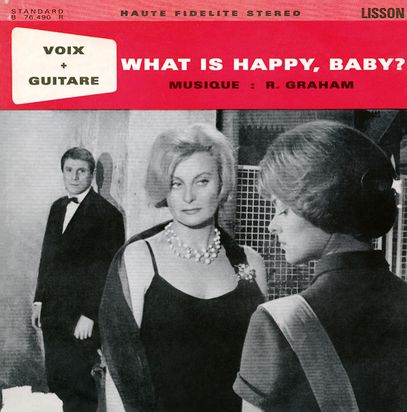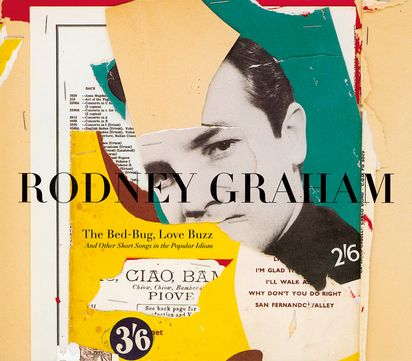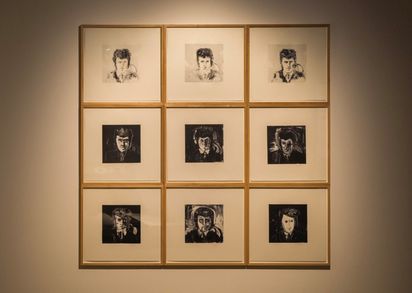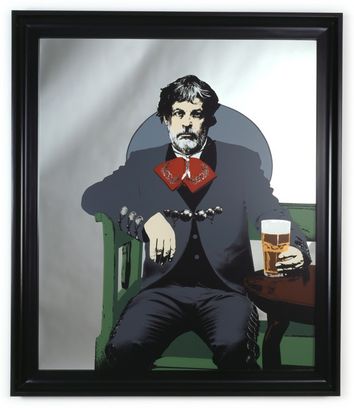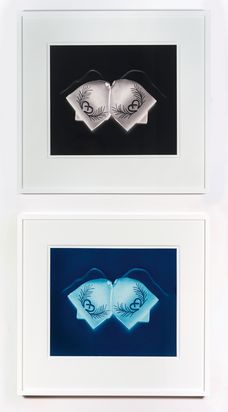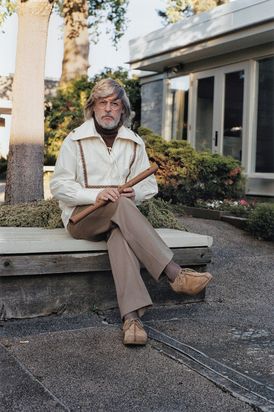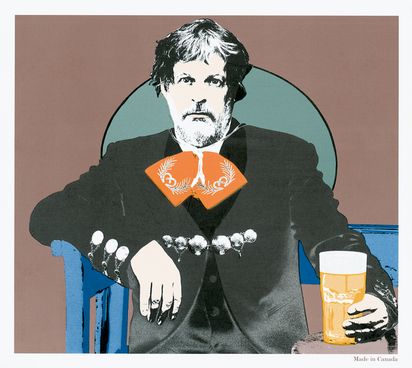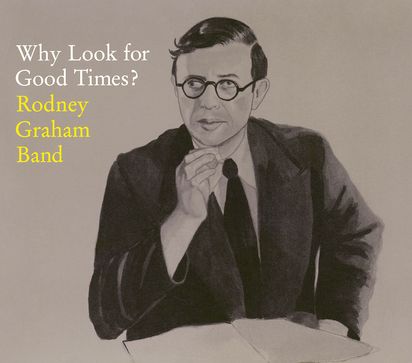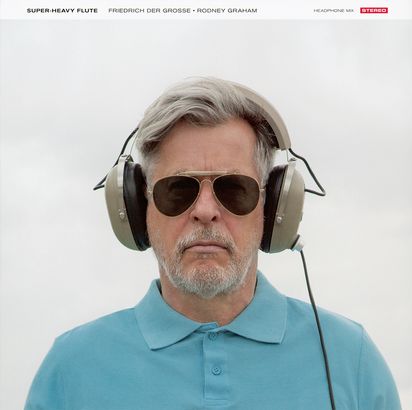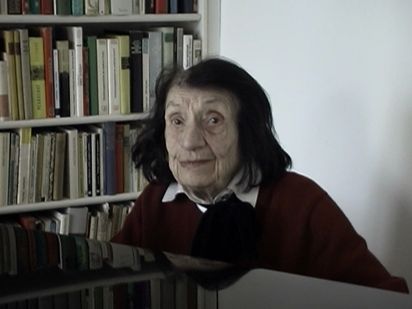French Film (2003) resembles an autobiographical video diary of its male protagonist Lior Schamriz, who documents his final days in Tel Aviv before moving to Paris. Filmed with a handheld camera, wobbly, over- and under-exposed images capture a patch of blue sky through a rain-covered window and leads viewers through Schamriz’s neighborhood to his favorite café, where they encounter his family and friends. From the off, a male narrator comments in French on the film’s action from the first-person perspective, thereby establishing an intimate relationship with the viewers, with whom he even share his feelings while watching porn films. Both the intimacy and authentic portrayal of the protagonist are constructed.
As in many of her early short films, here, too, Keren Cytter (born in Tel Aviv in 1977), has also included family members and friends as actors, who play themselves or other people from the artist’s private life. French Film was made the same year Cytter left Tel Aviv for Amsterdam. It is natural to see autobiographical references in the descriptions of the male protagonist, especially since the family members are played by the filmmaker’s relatives. But French Film is more complex, for it blends documentary and fiction, as well as past, present and future, in an experimental way.
French Film explores the composer and filmmaker Lior Schamriz, his love of music, his memories and dreams, and his visions of a new life in Paris. The image and sound tracks are decoupled—a common feature of Cytter’s films—and thus portray the events from different perspectives. The protagonist’s narrative flow is interrupted by white, blue and red fades—the colors of the French flag—which are accompanied by music sequences by Johannes Brahms, Eric Satie and Edith Piaf. Is Schamriz euphoric about life in the French metropolis, or is he already having second thoughts about leaving Tel Aviv?
In the last part of the film, things turn nightmarish. The protagonist becomes lost in destructive self-doubt, the torrent of which is only interrupted by memories of conversations with his girlfriend Naamah. These recollections are like rays of sunshine warming dark clouds on rainy days.


